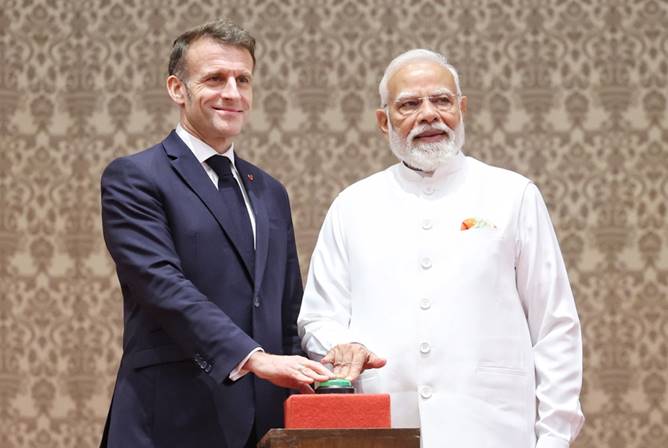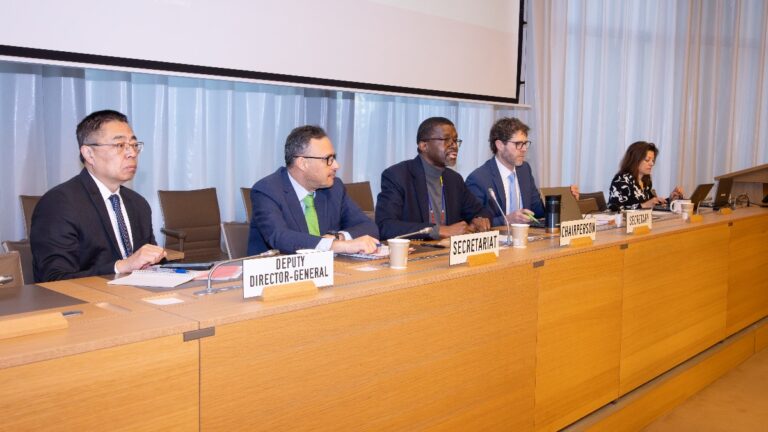
Geneva: Mohamed Auajjar, Chair of the Independent International Fact-finding Mission on Libya, this morning told the Human Rights Council that the Mission’s investigations had established that all parties to the conflict in Libya since 2016, including third States, foreign fighters and mercenaries, have violated international humanitarian law, in particular the principles of proportionality and distinction, and some have also committed war crimes.
Auajjar said airstrikes had killed dozens of families. The destruction of health-related facilities had impacted access to health care and anti-personnel mines left by mercenaries in residential areas had killed and maimed civilians. Arbitrary detention in secret prisons and unbearable conditions of detention were also widely used by the State and militias against anyone perceived to be a threat to their interests or views. Violence in Libyan prisons was committed on such a scale and with such a level of organization that it may also potentially amount to crimes against humanity.
Also read: Fact-finding mission establishes incidences of war crimes in Libya
He said individuals and groups – both Libyans and foreign actors – had been identified and may bear responsibility for the violations, abuses and crimes committed in Libya since 2016. This confidential list would remain so, until the need arose for its publication or sharing with other accountability mechanisms. The extension of the mandate for another year would allow the Mission to complement the work undertaken.
Libya, speaking as the country concerned, assured the Council of Libya’s political will to promote human rights and to assume its responsibilities in that regard, as evidenced by its support for the establishment of the Mission, its subsequent cooperation with the Mission and its support for the extension of the mandate. Libya had cooperated with the Mission despite all the challenges, including those related to COVID-19 – and hoped that more efforts would be focused to help the Libyan Government through technical assistance and capacity building. Libya therefore asked what measures the international community intended to take to remedy the impunity of certain countries that did not comply with international resolutions on the arms embargo or the presence of mercenaries in Libya. Libya also asked about the state of international initiatives to combat transnational crime, which directly affected the ability of national institutions to carry out their missions.
In the interactive dialogue on Libya, speakers welcomed the cooperation of the Libyan Government with the Fact-finding Mission. Concern was expressed over the targeting of civilians. Speakers expressed hope for free forthcoming elections in Libya on 24 December. Some speakers noted how human rights violations and abuses by militias, armed groups and security forces continued unabated in Libya in a climate of impunity. The Fact-finding Mission had documented widespread arbitrary detention, enforced disappearances, and other unlawful deprivation of liberty, torture and other ill-treatment, rape and sexual and gender-based violence, unlawful killings, and grossly unfair trials, including military trials for civilians.
Speaking on Libya were European Union, Denmark, Cameroon, Egypt, Qatar, Liechtenstein, Greece, Germany, United Nations Children’s Fund, Egypt, Switzerland, Iraq, Netherlands, Bahrain, Venezuela, Malta, Russian Federation, Morocco , United States, Turkey, Belgium, China, Cyprus, Czech Republic, Italy, United Nations Women, Algeria, Yemen, United Kingdom, Spain, Mali, Jordan, Ireland, Mauritania , Tunisia, Sudan, France, Chad and Austria.
The following non-governmental organizations also spoke on Libya: International Institute for Rights and Development Geneva, Amnesty International, Elizka Relief Foundation, Cairo Institute for Human Rights Studies, Human Rights Watch, Rencontre Africaine pour la defense des droits de l’homme, International Commission of Jurists, World Organisation Against Torture, Maat for Peace, Development and Human Rights Association, and International Human Rights Council.
– global bihari bureau





